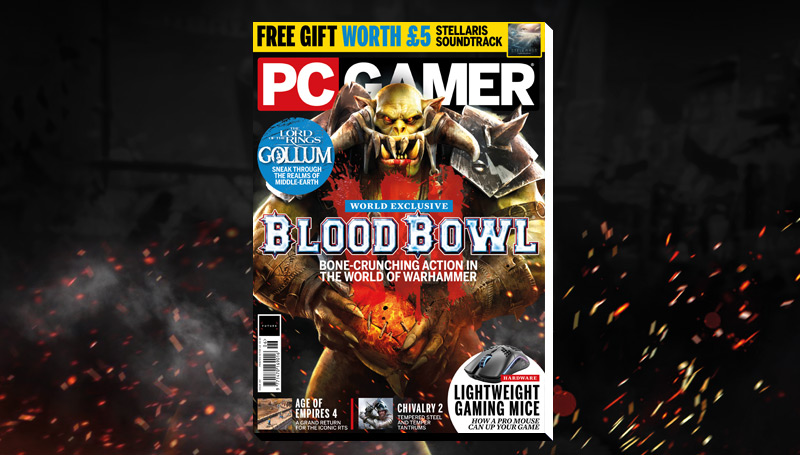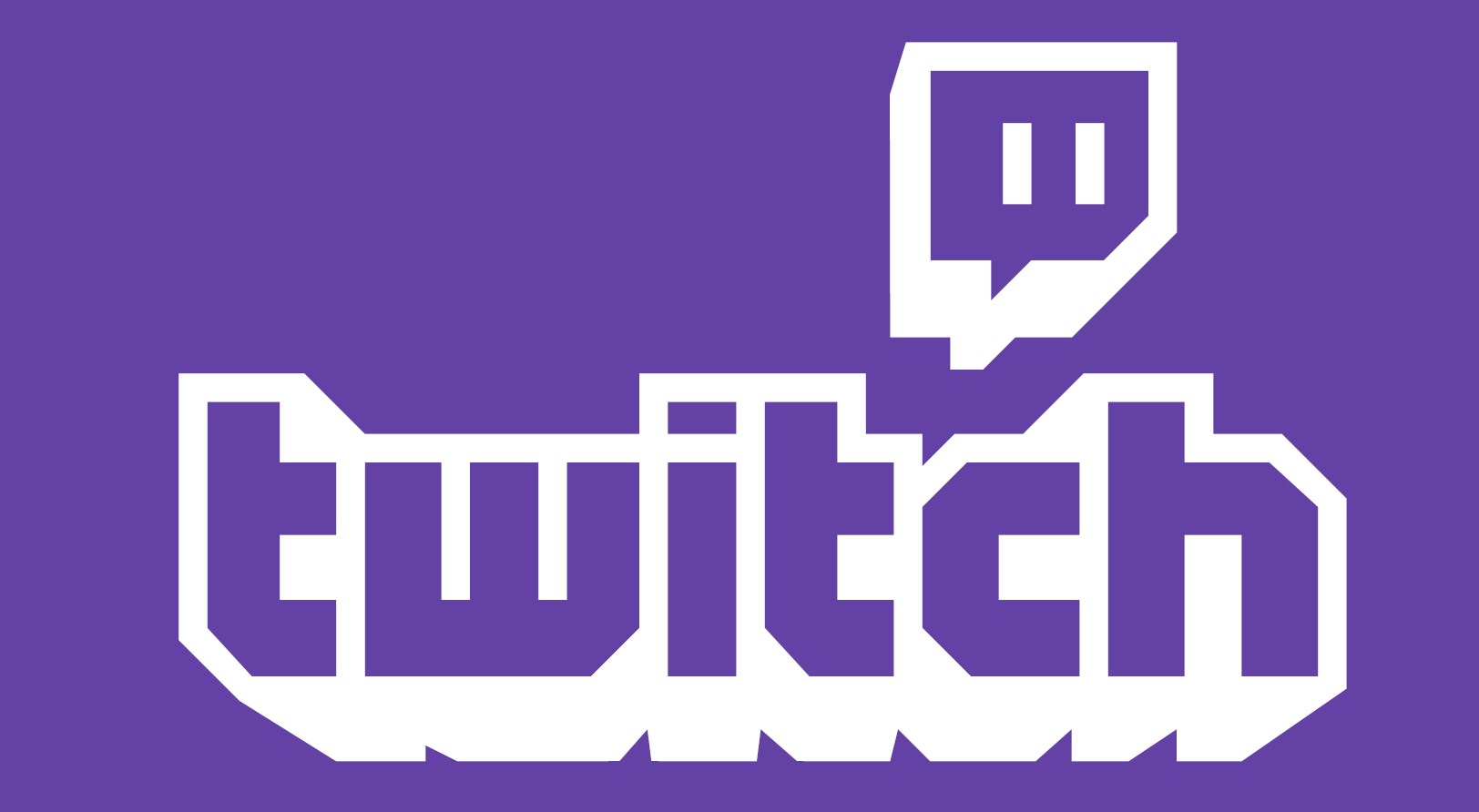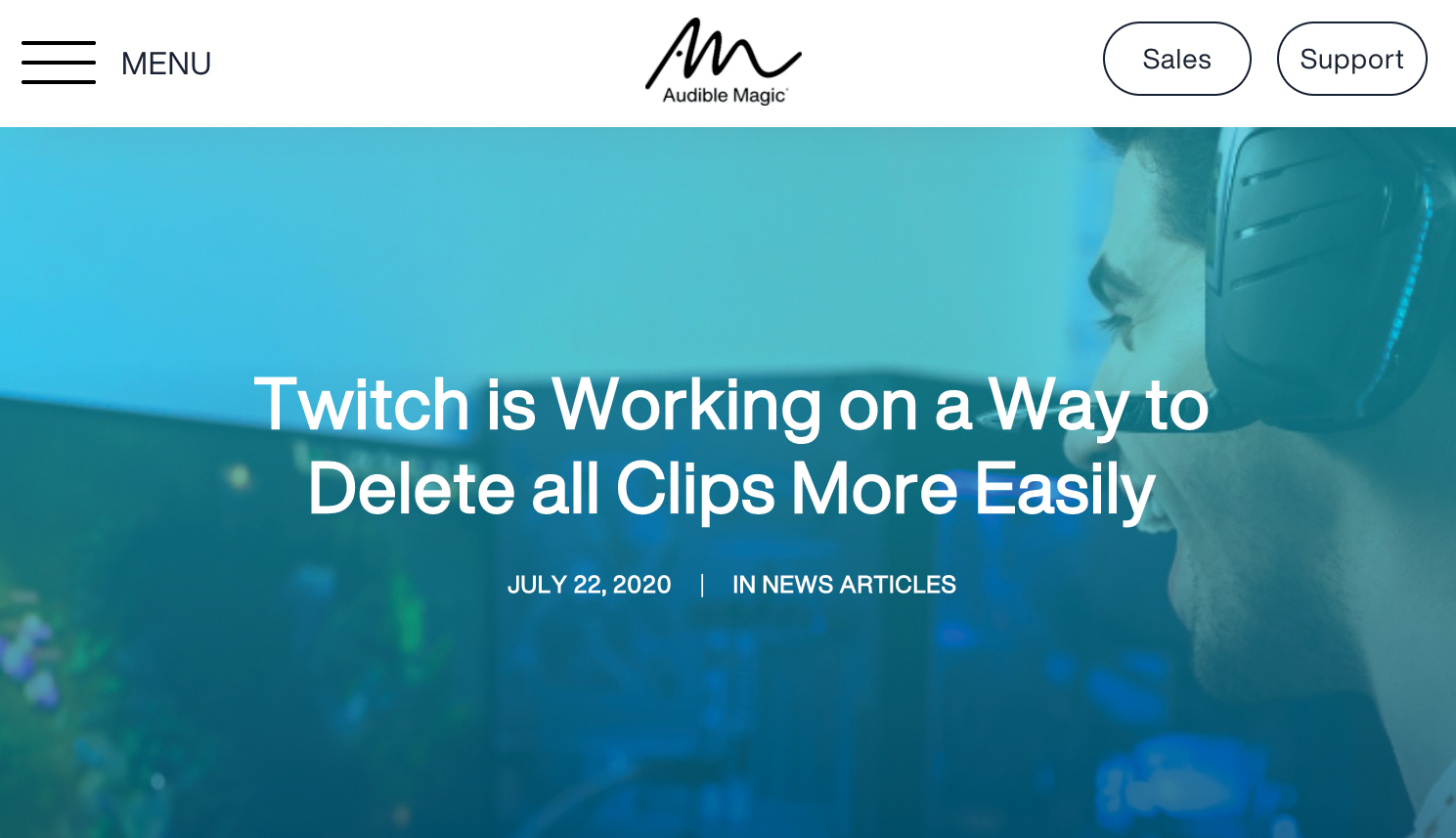After thousands of DMCA takedowns, Twitch has to make peace with the music biz
After overlooking the platform for years, the music industry has started turning its eye to Twitch.


This article first appeared in PC Gamer magazine issue 357 in May 2021. Every month we run exclusive features exploring the world of PC gaming—from behind-the-scenes previews, to incredible community stories, to fascinating interviews, and more.
Metallica never scored a Legend of Zelda game, but it sounded like it when Twitch replaced Metallica's BlizzCon 2021 concert with cheery midi music. The biggest streaming platform in the world had to censor its own broadcast or risk upsetting an already aggravated music industry.
In 2020 the music industry attacked Twitch in a letter claiming it "continues to turn a blind eye to the same users violating the law while pocketing the proceeds of massive unlicensed uses of recorded music". After largely ignoring Twitch for years, the music industry started sending thousands of DMCA takedowns for copyright violations. So Twitch reacted—dramatically. In October, it forced streamers to delete thousands of old VODs, with no good tools to determine which files were problematic.
The music industry is upset with copyrighted music in livestreams and VODs, but Twitch's existing solutions are all for the latter. It also insists that Twitch needs to pay for broader licences for its Soundtrack tool, which is meant to let streamers play licensed music safely. If the music industry continues to press, is that Metallica concert just a preview of what enforcement will look like in a few years, with automated tools detecting and silencing copyrighted material live, instead of just cleaning up VODs?
"[That's what] I would expect," says Kellen Voyer, a lawyer who specialises in IP and technology law. "With all new technology there's a period of freedom, then a teething period, then some form of equilibrium between the technology and rights holders. Then another technology emerges and it starts all over again."

Getting Twitchy
Twitch today is firmly into its teething period. In November, Twitch told streamers that "things can—and should—be better for creators" and laid out plans for tools that will make it easier for streamers to manage copyright on their channels. What it hasn't said much about is what Twitch can do to prevent those DMCA takedowns.
Twitch Soundtrack, launched last year with a selection of licensed music, seemed like a solution. But the music industry claims Soundtrack doesn't include all the licensing it should. What's missing? Synch rights, which are complicated. Synch rights apply to the pairing of music with imagery. Twitch claims Soundtrack is "fully licensed", but its argument is based on an interpretation of the law that would mean synch doesn't apply to streams. The music industry doesn't see it that way. So why the admonishing letter and not a lawsuit?
Twitch told streamers that "things can—and should—be better for creators" and laid out plans for tools that will make it easier for streamers to manage copyright on their channels.
"I expect the RIAA and other groups are holding out for a deal being struck with Twitch," says Voyer. "They've had a long history of protracted, public battles over new technologies that have never ended exactly as they want and often been bad for PR. There's a lucrative relationship that could result should the parties ink a deal so continuing to push outside of court is a way to pursue this option."
Keep up to date with the most important stories and the best deals, as picked by the PC Gamer team.
Facebook Gaming signed a deal with major record companies to allow for licensed music in both livestreams and VODs. There are still limits to what songs can be played, but it's a "throw money at the problem" solution that takes some of the risk away from creators.
Twitch Soundtrack included about one million songs at launch, but doesn't have deals with any of the major music companies that Facebook does, like Warner, Universal, and Sony. If big-name partnerships and a licensing deal aren't in Twitch's future, it seems likely some kind of automated copyright system for livestreams will be.
YouTube's system, Content ID, is designed to scan videos and compare them against a database of copyrighted material. Content ID can even monitor livestreams and shut them down when they contain copyrighted content. Twitch uses a service called Audible Magic to detect copyrighted material and mute it in VODs and clips, but it doesn't work in real-time.
Stop the music
Content ID has some real drawbacks for YouTubers. Mismatches can trigger undeserved bans, and the Electronic Frontier Foundation argues that it's too good at flagging music, bulldozing over situations that should be considered fair use in the US.
That's not the major issue Twitch streamers are dealing with today, but if Twitch adopts technology that scans for copyrighted material live, not just in VODs, it could lead to big changes. Voyer thinks it's one possible outcome, if the music industry keeps pressing. Right now, Twitch is focusing on tools for streamers, like the ability to more easily delete batches of VODs and better DMCA notifications. If Twitch is planning new licensing deals or a content matching system that works live, it's not talking about those plans publicly.
"I expect most streamers want to use music without having to worry about licences, that's their best internet experience," says Voyer. "Conversely, the artists want exposure but also compensation for the use of their works, that's their best internet experience."
A solution like Content ID for live streams would probably mollify the music industry—and address its claim that "Twitch continues to turn a blind eye to the same users repeatedly violating the law"—but would also likely come with the same baggage the Electronic Frontier Foundation laid out. If Voyer's right, copyright issues will continue to build on Twitch until something breaks, "You can't appease both sides 100%, but I feel that a new normal will appear after this current period of tension (which I expect will only increase before it gets better)."

Wes has been covering games and hardware for more than 10 years, first at tech sites like The Wirecutter and Tested before joining the PC Gamer team in 2014. Wes plays a little bit of everything, but he'll always jump at the chance to cover emulation and Japanese games.
When he's not obsessively optimizing and re-optimizing a tangle of conveyor belts in Satisfactory (it's really becoming a problem), he's probably playing a 20-year-old Final Fantasy or some opaque ASCII roguelike. With a focus on writing and editing features, he seeks out personal stories and in-depth histories from the corners of PC gaming and its niche communities. 50% pizza by volume (deep dish, to be specific).


